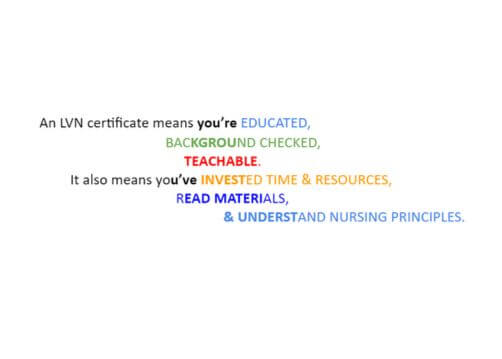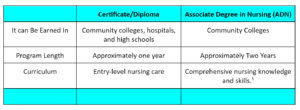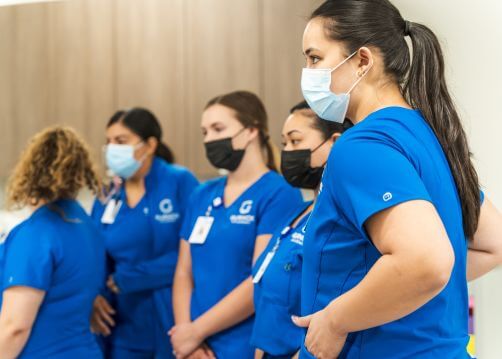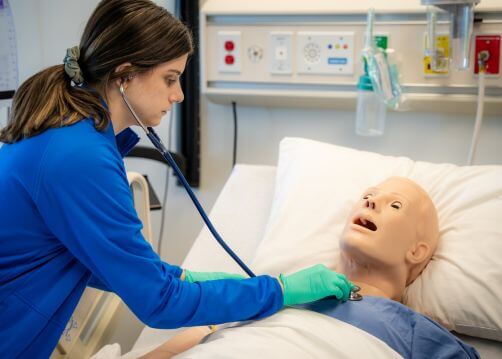An LVN Diploma–A Stepping Stone Toward a Rewarding Career
Date: October 27, 2023
Today, being a nurse is considered a noble and respected role. So much so that a recent Gallup poll named it the most trusted profession in America for 22 years in a row.1 But this was not always the case. By contrast, centuries ago, nursing was not only non-certified but not respected or vetted. At some historical low points, nursing was associated with non-skilled labor—even criminality.
From a historical perspective, “medical work” was crude, and overseeing care and convalescing fell to different entities. Throughout the Dark Ages [476–800 CE], friends or family provided care.2 In the Middle Ages [5th CE to 13th, 14th, and 15th centuries], Catholic monasteries nursed the ill and infirmed.2
With the dawn of the Reformation [16th and 17th centuries] and the church’s official caregiving position diminished, female prostitutes, thieves, and criminals fell into nursing. “Many of these women had no training and often robbed, extorted, or aided in hasting the death of their charges to further benefit from the spoils left behind.”2 Even up to Florence Nightingale’s [1820–1910] time, the dominant public perception was that nurses were either drunks or prostitutes. A “refined woman” would never be allowed to work outside the home.”3
 A Matter of Respect
A Matter of Respect
By contrast to ages past, where a medical expert was “a local wise woman, or witch, providing herbs or incantations,”4 today’s nursing education is marked with standardized compliance. Regulations, curricula, extensive training, and state-mandated boards accordingly dot the professional climate. Comprehensive training programs and testing are mandatory even within entry-level nursing, such as Vocational Nursing (VN) education.
Nursing Curricula
Today’s nursing curricula typically include anatomy, physiology, pharmacology, and nursing theory coursework. Additionally, students undergo clinical experiences, developing essential hands-on skills. By and large, most VN programs range from 12 to 18 months, depending on the institution. For example, Gurnick Academy’s VN diploma program is 13 months long. Some schools offer flexible schedules to accommodate working professionals or those with commitments. Many colleges offer online or hybrid formats for their coursework.
Work Climate
Accordingly, LVNs work under registered nurses (RNs) and assist in providing direct patient care. They help with medications, conduct basic medical procedures such as wound care, and maintain patient records. Also, LVNs assist with patient assessments, routine screenings, collecting patient histories, and providing patient education. LVNs often perform administrative tasks such as managing appointments and coordinating patient care.
It may surprise you, but LVNs may specialize in specific areas. I.e., Pediatrics, geriatrics, or critical care. These options provide avenues for career growth as nurses follow personal and niche interests. Moreover, specializing allows nurses to focus on the specific healthcare needs of different patient populations.
Most often, LVNS are points of contact with their patients. Of note, home healthcare LVNs often form strong bonds with their patients. Still professional, their work often promotes independent living skills while ensuring the whole patient’s well-being. I.e., they take vital signs or assist with personal hygiene.
Options and Conclusions
In conclusion, obtaining an LVN diploma is a significant achievement. The accomplishment opens doors to numerous job opportunities. Or it may serve as a stepping stone toward higher nursing levels or other healthcare fields. It may be the foundation for those aiming to pursue higher educational levels. For example, LVNs choose to go on and become registered nurses (RNs) or advance to other healthcare-related professions.
Finally, there are multiple options for nursing and many opportunities for each nursing option. Further, nursing options are limitless for those who remain teachable, go through formal training, and have a spirit of compassion.
Gurnick Academy offers many nursing options. Find your VN options here.~









